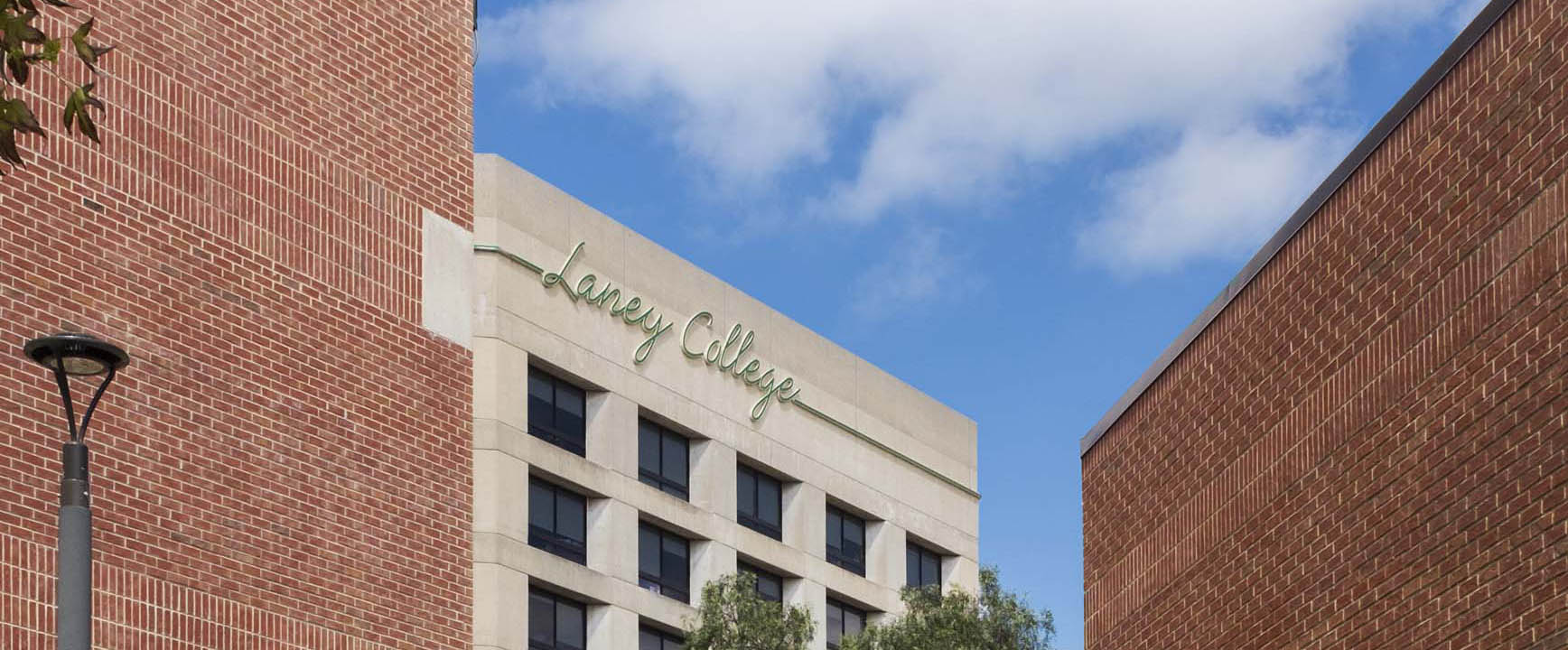What are IL Outcomes?
Institutional Learning Outcomes are a list of things that we want students to be able to do after being awarded an AA or AS degree at Laney. The ILOs are SLOs that cover all of the Programs at Laney and they were developed with all such Programs at Laney College in mind.
Why did we develop ILOs?
The current accreditation standards require that we develop SLOs for every program at this college, including the institution itself. In addition, it is helpful to define what we want our students to be able to do upon graduation, and it is helpful to assess whether or not students can actually achieve the outcomes. By assessing whether or not students can actually do these things, we can check the breadth and depth of our student’s learning. We can use the results of the assessments to focus our efforts for improvement. We can then base our decisions on evidence rather than vague, general impressions.
The process used to develop these outcomes:
The Learning Assessment Committee decided that Laney should create one outcome per GE requirement. That way, each GE course would be associated with one outcome. This also means that any student who completes the GE program would definitely be able to do all of the outcomes listed, no matter which courses they end up choosing to fulfill the requirements.
Over the course of the Fall 2007 semester, several GE focus groups/work groups were convened. Each group did some background reading and then met one time to discuss and develop one outcome statement that was general enough to fit any class within that GE area.
Different formats
In the “documents” section at the left of this page, you will be able to view the GE outcomes in a few different formats.
We have received feedback on the outcomes and have revised them effective February 2008. On February 26, 2008, the GE outcomes were approved by the curriculum committee.
After we finalize the outcomes, we will start assessing student achievement of the outcomes. This work will require lots of coordination between different instructors and departments. Stay tuned!
Laney College
General Education Outcomes
(organized by general categories)
March 2008
Students who complete the general education program for an AA or AS degree at Laney College will be able to:
Communication
A. Develop individual perspectives in essays that demonstrate critical thinking skills, command of standard grammar, and logical organization. (Area 4a: English Composition)
B. Construct and deliver a clear, well-organized verbal presentation. (Area 4d:Oral Communication )
OR:
B. Organize information coherently in writing, and choose language and format appropriate for the intended audience and purpose. (Area 4d:Written Communication)
OR:
- Read critically and analyze various literary genres.
(Area 4d: Literature)
Critical Thinking and Information Literacy
A. Solve quantitative problems using numerical, graphical, and algebraic methods. (Area 4b: Mathematics)
B. Demonstrate proficiency in using a computer and computer applications, including the Internet, to accomplish personal, academic, and/or professional tasks. (Area 4c: Computer Literacy)
C. Locate and cite appropriately information from a variety of sources (books, databases, internet, primary sources) in various formats (print, online, multimedia); evaluate information for relevance and reliability, and incorporate it effectively into written work. (Information Competency)
Breadth/Global Awareness
A. Apply the principles, concepts, and/or methods of the natural sciences to everyday life. (Area 1: Natural Sciences)
B. Critically analyze personal experiences within the context of historical, cultural, and environmental phenomena. (Area 2: Social and Behavioral Sciences)
C. Investigate and appreciate the fine arts and humanities, including the cultural and artistic perspectives of people of various cultures and times. (Area 3: Humanities)
D. Critically evaluate the historical and contemporary experiences of African Americans, Mexican/Latino Americans, Asian Pacific Americans, or Native Americans using interdisciplinary approaches. (Area 5: Ethnic Studies)
Ethics and Civic Responsibility
A. Demonstrate an increased awareness of ethical behavior, civic and social responsibilities locally, nationally, and globally. (Ethics/Citizenship)
Laney College General Education Outcomes
(organized by GE Requirement)
March 2008
Students who complete the general education program for an AA or AS degree at Laney College will be able to:
Area 1: Natural Sciences
Apply the principles, concepts, and/or methods of the natural sciences to everyday life.
Area 2: Social and Behavioral Sciences
Critically analyze personal experiences within the context of historical, cultural, and environmental phenomena.
Area 3: Humanities
Investigate and appreciate the fine arts and humanities, including the cultural and artistic perspectives of various cultures and times.
Area 4a: English Composition
Develop individual perspectives in essays that demonstrate critical thinking skills, command of standard grammar, and logical organization.
Information Competency (assessed with English Composition)
Locate and cite appropriately information from a variety of sources (books, databases, internet, primary sources) in various formats (print, online, multimedia); evaluate information for relevance and reliability, and incorporate it effectively into written work.
Area 4b: Mathematics
Solve quantitative problems using numerical, graphical, and algebraic methods.
Area 4c: Computer Literacy
Demonstrate proficiency in using a computer and computer applications, including the Internet, to accomplish personal, academic, and/or professional tasks.
Area 4d: Oral Communication
Construct and deliver a clear, well-organized verbal presentation.
OR:
Area 4d: Written Communication
Organize information coherently in writing, and choose language and format appropriate for the intended audience and purpose.
OR:
Area 4d: Literature
Read critically and analyze various literary genres.
Area 5: Ethnic Studies
Critically evaluate the historical and contemporary experiences of African Americans, Mexican/Latino Americans, Asian Pacific Americans, or Native Americans using interdisciplinary approaches.
Ethics/Citizenship
Demonstrate an increased awareness of ethical behavior, civic and social responsibilities locally, nationally, and globally.



